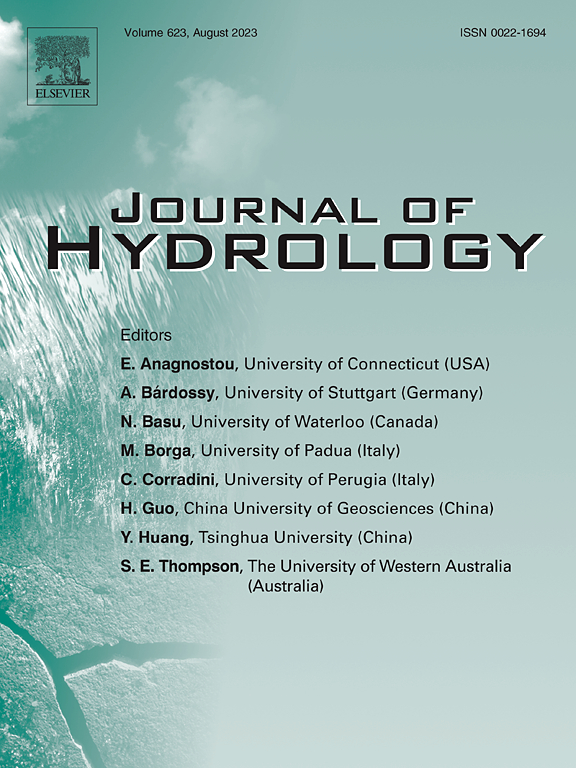Unwrapping the triptych of climatic, social and energy-market uncertainties in the operation of multipurpose hydropower reservoirs
IF 5.9
1区 地球科学
Q1 ENGINEERING, CIVIL
引用次数: 0
Abstract
The ongoing debate about hydropower and its role in the transition towards renewable energy development is strongly associated with its sustainable character, social and environmental footprint, and potential benefits. Multipurpose hydropower reservoirs play a significant dual role as they serve both water and energy uses. However, their operation and management are subject to inherently uncertain processes, future challenges, and externalities originating from climate, society and the energy market. In this context, we contribute an uncertainty-aware optimization methodology that supports operators in accounting for the cascade effects of three main uncertain drivers, i.e., rainfall, water demands, and energy scheduling. To describe climatic and energy-market uncertainties, stochastic approaches are followed to generate 2000 years of daily synthetic rainfall and electricity price data, respectively. To account for human-oriented procedures, i.e., water and energy targets, statistical analyses of historical abstractions are employed to fit copula-based relationships, in which the desirable releases for energy production depend on day-ahead electricity prices. Finally, a toolbox is established, offering insights for decision-making regarding the estimated profits, their expected changes, and the associated risk due to climate or market-oriented shifts. Our approach is demonstrated in a multipurpose reservoir in Greece, Plastiras, which is affected by rapidly increasing socioeconomic conflicts. Our findings indicate that an improved understanding of uncertainty can lead to more efficient operation policies and shield operator from misleading perceptions and their often-detrimental effects. Specifically, in the high electricity price era the expected profits are substantially unstable, since a suboptimal trade-off between irrigation and energy production may be risky and costly.
求助全文
约1分钟内获得全文
求助全文
来源期刊

Journal of Hydrology
地学-地球科学综合
CiteScore
11.00
自引率
12.50%
发文量
1309
审稿时长
7.5 months
期刊介绍:
The Journal of Hydrology publishes original research papers and comprehensive reviews in all the subfields of the hydrological sciences including water based management and policy issues that impact on economics and society. These comprise, but are not limited to the physical, chemical, biogeochemical, stochastic and systems aspects of surface and groundwater hydrology, hydrometeorology and hydrogeology. Relevant topics incorporating the insights and methodologies of disciplines such as climatology, water resource systems, hydraulics, agrohydrology, geomorphology, soil science, instrumentation and remote sensing, civil and environmental engineering are included. Social science perspectives on hydrological problems such as resource and ecological economics, environmental sociology, psychology and behavioural science, management and policy analysis are also invited. Multi-and interdisciplinary analyses of hydrological problems are within scope. The science published in the Journal of Hydrology is relevant to catchment scales rather than exclusively to a local scale or site.
 求助内容:
求助内容: 应助结果提醒方式:
应助结果提醒方式:


